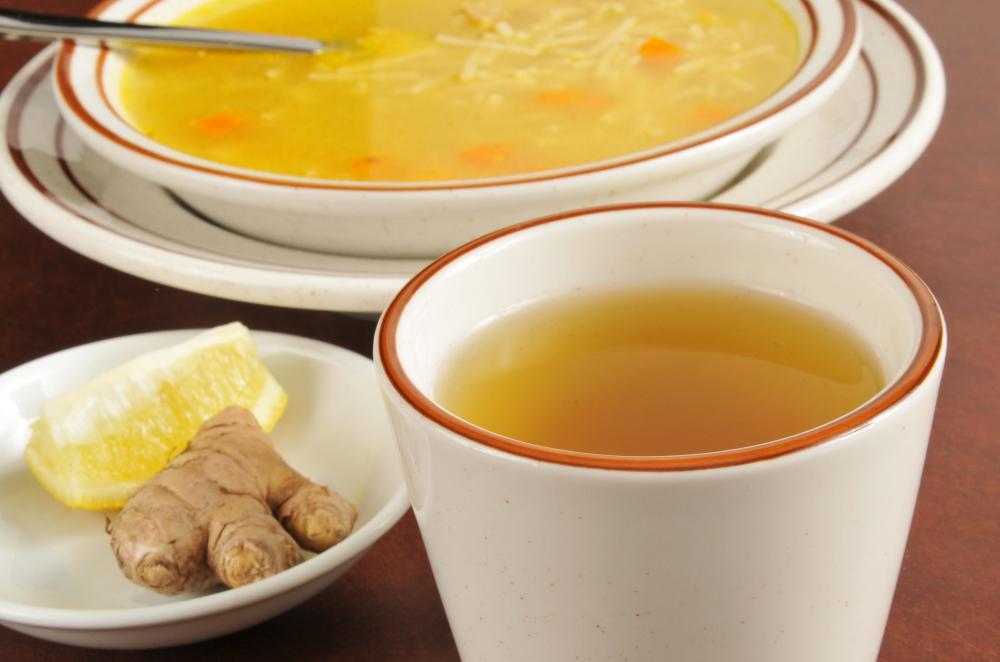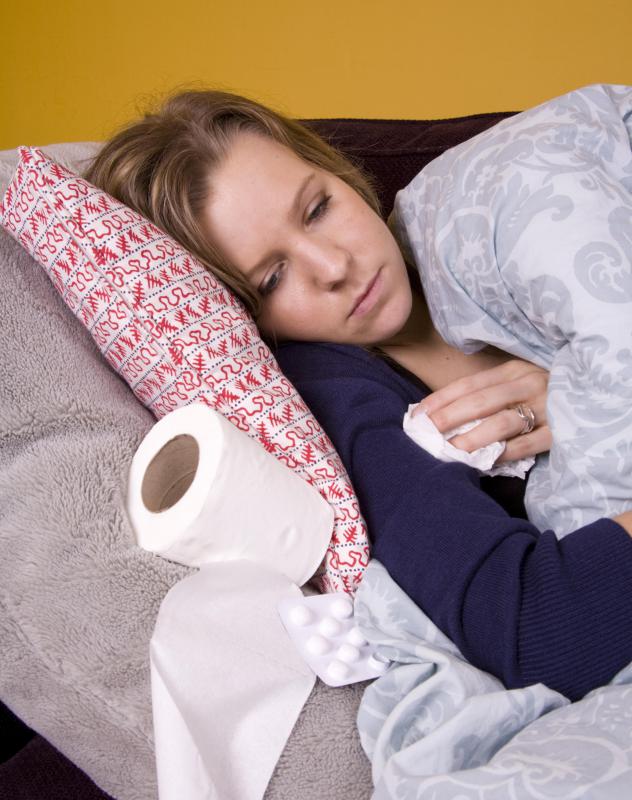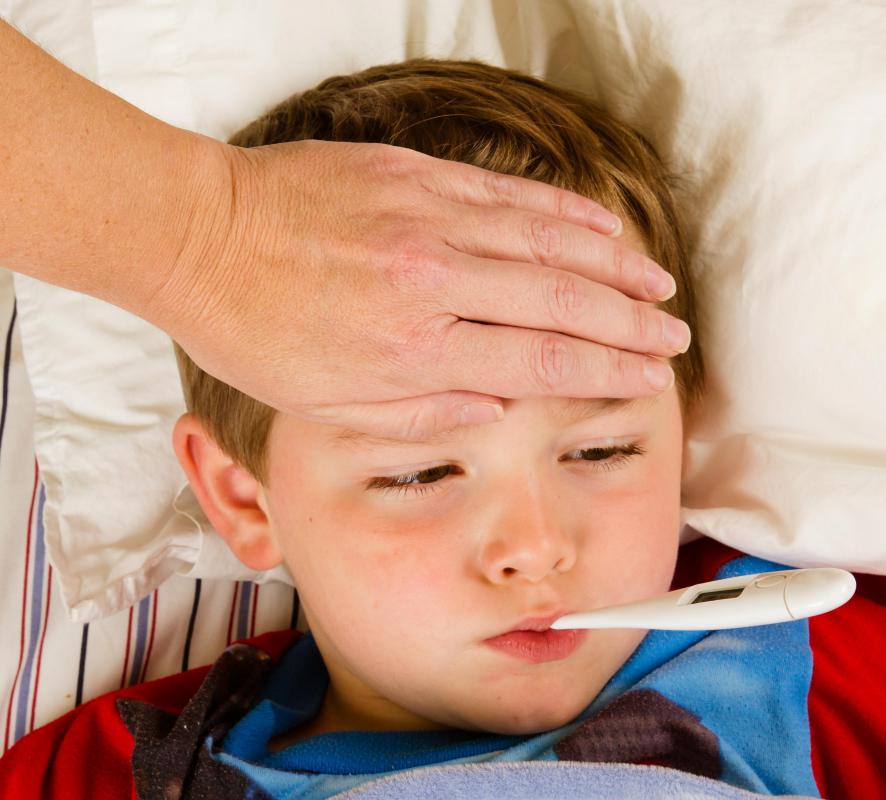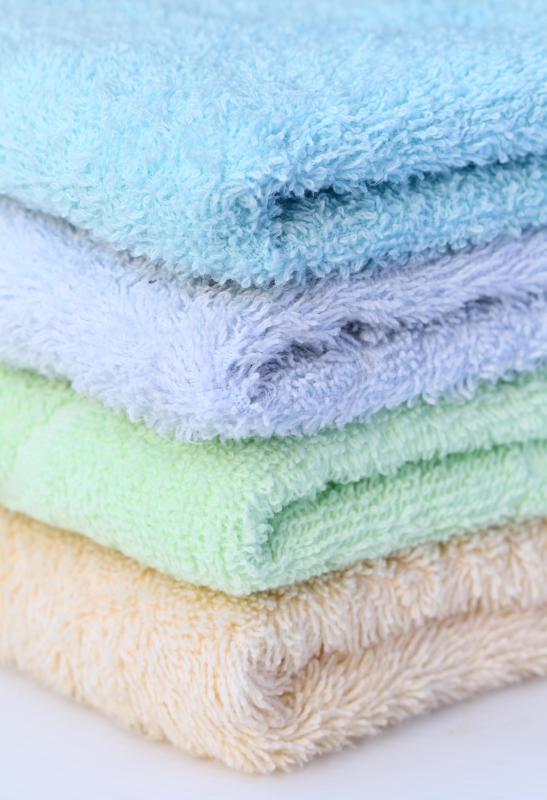At WiseGEEK, we're committed to delivering accurate, trustworthy information. Our expert-authored content is rigorously fact-checked and sourced from credible authorities. Discover how we uphold the highest standards in providing you with reliable knowledge.
What are Some Home Remedies for the Common Cold?
The common cold is usually an uncomplicated illness associated with nasal stuffiness and sneezing, itchy throat, slight cough, and a few days of fever. Because the common cold has been spoken of since prior to the Common Era, home remedies abound. Most early remedies, like applying mustard plasters to the chest, or wearing cloves of garlic are not effective and have since been discarded. Current home remedies for the common cold vary in effectiveness.
For years, many have believed that taking Vitamin C and echinacea can reduce the duration of the common cold, or prevent contracting colds. Recent double-blind studies suggest that neither of these supplements aids much in recovery from or prevention of the common cold.

Conversely, taking zinc, which is another supplement, has been proven to reduce the days one is affected by the common cold. Zinc can cause some to suffer diarrhea or severe stomachache, however, so one should test sensitivity with a small amount of zinc. If the cure proves more difficult than the illness, zinc should probably be avoided.
One of the classic remedies for the common cold is chicken soup. Scientists speculate that chicken soup may be effective because of its combination of salt, fluids, and protein. It may help fuel the body when one doesn’t feel much like eating. In most cases, homemade chicken soup is preferable to canned because it has a lower sodium content.

Many people take over the counter decongestants or cough suppressants. Antihistamines like benadryl may also be helpful, but will cause drowsiness. One of the simplest decongestants can be prepared at home. Saline nasal drops made from a combination of table salt and water can help clear the nose, though congestion usually returns. However, physicians recommend drops particularly for those prone to sinus infections. Clearing the nose can keep the common cold from developing into bacterial infection of the sinuses.

A less invasive method for helping to clear the clogged nose during the common cold is to take a warm bath, or stand in a shower. As well, humidifiers or cool mist vaporizers can help reduce congestion from the common cold that may be complicated by dry air. Young children, who do not usually respond well to over the counter decongestants, may be particularly helped by bathing, showering, or simply sitting in a bathroom with the shower running. The use of a humidifier at night can also help reduce incidence of croup caused by the common cold.

Honey is a time honored cough suppressant for use during the common cold or for bouts of bronchitis. Honey should never be given to children under the age of one, however, since it harbors botulism spores that can give children botulism. It is usually safe to use in children over the age of one, though immunosuppressed children may be more susceptible to botulism. Consult your physician before administering honey to an immunosuppressed adult or child.

Most physicians believe that intake of fluids is very important when one has the common cold. Fluid intake should include at least six to eight glasses of water, herbal teas or juice daily. As well, limit intake of caffeine as this can actually dehydrate the body and make the common cold last longer.
Another method that may prove temporarily helpful in relieving congestion is applying hot compresses to the face on either side of the nose. Warm washcloths can help break up congestion. One should be careful not to make the washcloth too warm, especially when using on the sensitive skin of young children. This treatment for the common cold usually lasts only as long as the compresses are applied.

Young children and infants with colds are particularly assisted by breastfeeding. Often children have difficulty eating during colds, but will still readily breastfeed. Breastmilk reduces number of colds, and also helps a child through a cold by providing the child with natural immunities from the mother. When possible, breastfeeding a child through the common cold can help shorten duration.

Most everyone has a home remedy or tradition associated with treating the common cold. When considering using an old family tradition, be certain that the treatment in no way is hazardous to one’s health. The common practice of applying mentholate under the nostrils, for example, can be hazardous to young children. As with the treatment of any illness, common sense, and medical advice when needed can help one decide whether it is time to discard a home remedy in favor of more proven or safer methods.
AS FEATURED ON:
AS FEATURED ON:
























Discussion Comments
Somerset- When I start developing common cold symptoms, the first thing I do is get my Zicam. They sell Zicam in a pill form as well as a nasal mist.
As soon as I take Zicam I start to feel better. My aches and pains, along with my headache and stuffy nose start going away.
You have to take it immediately when you start to feel a cold coming on because if you wait until you have the full blown condition then it won’t work for you.
Whenever I start feeling a cold coming on, I start taking vitamin C and it seems to help. Placebo? maybe, but if it works it is OK with me. At least one 500 mg chewable tablet, sometimes 2, but not at the same time. I usually don't get a cold, or the cold is in a milder form, so I get over it very quickly. I also like to sip tea with lemon, additional vitamin C. Since vitamin C is water soluble any excess will leave the body. The way I figure it is that vitamin C makes it easier for the body to fight of any cold causing viruses. The timing is important, the sooner I take it the more effective it usually is. Of course extra rest helps too.
Post your comments